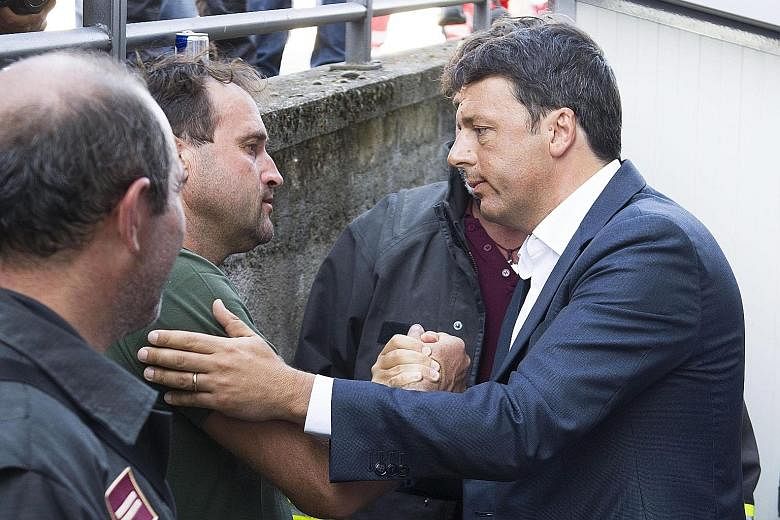Once the rising star of European politics, Italy's young centre-left leader, Prime Minister Matteo Renzi, has seen his popularity plunge in recent months amid rising unemployment and weak economic growth.
Several polls last month showed that more voters prefer the antiestablishment 5-Star Movement to Mr Renzi's Democratic Party.
5-Star's Luigi Di Maio has also overtaken the Prime Minister as Italy's most popular political leader, with an approval rating of 30.6 per cent compared to Mr Renzi's 27.2 per cent, according to a Euromedia survey.
In a couple of months, the country is expected to hold a referendum on constitutional reform in what is being seen as a vote of confidence in Mr Renzi's leadership.
Mr Renzi said initially that he would resign if the public voted "no", but recently he dismissed the possibility of early elections whatever the result of the referendum.
The political future of Mr Renzi, who has been in office since 2014, matters not only to Italy but also to Europe as a whole. Should he lose his job, German leader Angela Merkel would lose a combative but ultimately reliable partner, and Italy could slide into political instability, with potentially serious consequences for the continent.
Mr Renzi now faces another challenge: the devastating earthquake that has killed 268 people in central Italy.
With all eyes on the government's response, Mr Renzi should be careful about making promises, said Mr Paolo Paramucchi, who lives near the hardest-hit province of Rieti and who served as director of communication in a number of Italian ministries during the 1980s and 1990s.
"In my opinion, he is a bit over-promising... He says 'we will not abandon you, we will rebuild everything as it was'. But we need facts. The government's credibility is at stake," Mr Paramucchi told The Straits Times.
On Wednesday, Mr Renzi visited areas hit by the quake and chaired an emergency meeting in Rieti. He has also released an initial tranche of €50 million (S$76 million) in emergency aid.
But huge challenges remain for the government, which has to tackle the humanitarian emergency and repair the local economy.
"There is enormous damage. I hope we won't be forgotten after a couple of weeks," said Mr Giuseppe Nanni, who lives close to the badly damaged town of Accumoli.
A former high-ranking officer of the Civil Protection Agency said the country needed to be better prepared for natural disasters.
"We should also work on prevention. Laws exist, what we lack is enforcement," he said.

